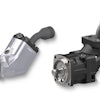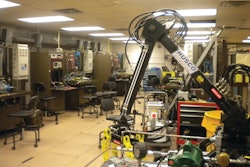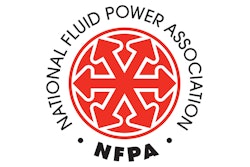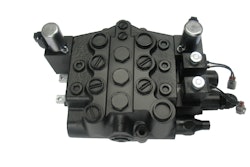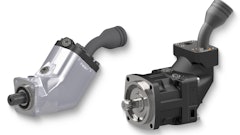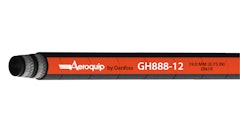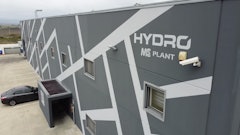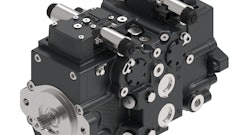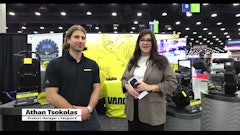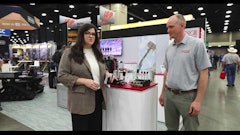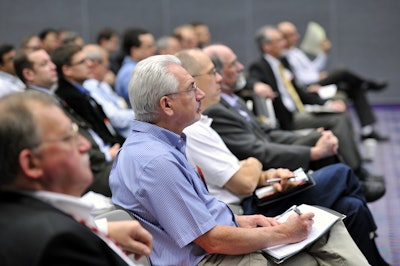
The fluid power industry has had several years of rapid evolution as electronic controls and hybrid-electric systems continue to progress the capabilities of fluid power components. It has been a fascinating industry to watch develop, and no single entity has been more instrumental in the industry's growth and success as the National Fluid Power Association (NFPA, association information, 10055830), Milwaukee, WI.
Co-owned by the NFPA and the Association of Equipment Manufacturers (AEM, association information, 10093568), also in Milwaukee, WI, IFPE 2014 leads the industry as the top international exposition and technical conference dedicated to fluid power system integration with other technologies for power transmission and motion control applications.
This year, the NFPA booth (S-81730) will continue to provide a gathering place for fluid power engineers to interact with key original equipment manufacturers. "IFPE helps NFPA achieve its mission of strengthening the fluid power industry," a recent press release from NFPA stated. The association focuses on three main goals for strategic industry support and development: technology innovation, workforce development and inclusiveness for better collaboration between fluid power partners. The fluid power industry is especially concentrated on building a strong educational system and future workforce, as there are few fluid power-specific programs for engineering students that provide the information and laboratory opportunities to peak industry interest. (Read the complementary story, "When educational meets professional" on page XX on the Milwaukee School of Engineering [MSOE] and its dedicated program for the development of fluid power professionals and its services provided to the industry.)
The NFPA itself hosted a number of educational opportunities at IFPE including college-level courses and a robust technical conference. (Download the Education Brochure for IFPE at www.oemoffhighway.com/11298441 and search through dozens of courses, seminars and technical sessions.) The courses offer both practicing engineers and others involved in design and manufacturing process hands-on technical knowledge on fluid power and hydraulic components and systems. Educational topics include a fluid power system overview, proper sizing of hydrostatic transmissions using calculations, hydraulic fluid condition monitoring, and hybrid system design.
Thursday, March 6 while at IFPE, the NFPA hosted the 2014 International Fluid Power Summit which brings together leaders from fluid power associations from around the world. The summit promotes peer discussion on worldwide strategies to address global challenges facing the fluid power industry.
Beyond IFPE: Education and the future workforce
The reach and scope of the IFPE platform is wide for the NFPA to meet with thousands of current and future members, as well as start dialogues with partner OEMs and industry professionals. But, in order to keep the pool of fluid power members full, the NFPA has been dedicated to recruiting talent to the industry. The workforce shortage has been consistently one of the most challenging and pressing issues the fluid power industry is facing.
Partnerships with engineering colleges, such as MSOE educate and promote students to pursue careers in the fluid power industry through hands-on laboratory experience and internship programs with major fluid power companies.
In 2013, the NFPA awarded a second $100,000 grant to MSOE to develop its envisioned mechatronics and fluid power lab to develop its undergraduates' technical skills. The program will act as a foundation for a student's continued skill development in the areas of modeling and simulation, and later will introduce the student to complex, nonlinear systems. Design problems presented later in a student's educational career will serve as challenges to allow both an application of learned skills and a demonstration of innovative thinking and creative problem solving. The lab is expected to be completed in the fall of 2015. NFPA also awarded a $100,000 grant to Western Michigan University in 2012 to develop a fluid power lab.
Eight years ago, the NFPA along with its industry members established the Center for Compact and Efficient Fluid Power (CCEFP), a network of researchers, educators and industry volunteers funded by the National Science Foundation and dedicated to working to transform the fluid power industry. These efforts have contributed to a 500% growth in both faculty engaged in fluid power education and graduate students focusing on the technology. CCEFP research is used by industry and government for sponsored research projects, focused on product development and commercialization.


